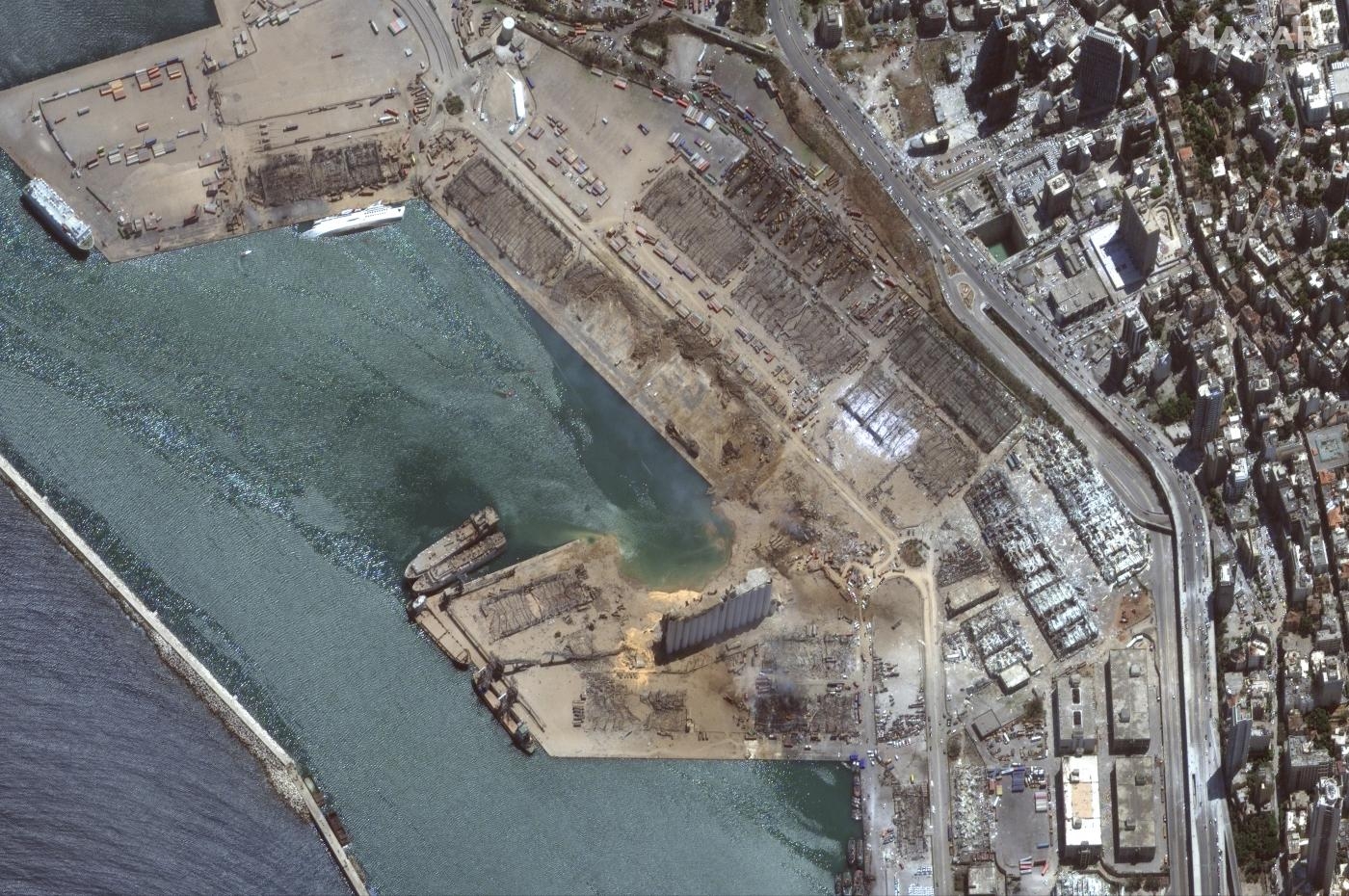Beirut explosion: Container lines resume calls to city as terminal restarts operations

Container lines have resumed calls to Beirut after last week's explosion, with the terminal having sustained only minor damage, leading shipping companies have said.
The 4 August blast in Beirut's port, which killed more than 160 people and injured 6,000 more, caused widespread damage across Lebanon's capital in seconds.
Container lines diverted ships to Lebanon’s smaller port of Tripoli to keep vital supply lines running.
"We are glad to advise that the container terminal suffered only minor damage and it has restarted operations,” German container line Hapag Lloyd said in a note to customers on Tuesday, adding that its first ship to call at Beirut since the disaster is due to dock on Friday.
"Alongside our service reinstatement, we are also reopening booking acceptance for cargo to and from Beirut," the company said, adding that it was still evaluating the extent of damage to its containers that were in the port at the time of the blast.
Hapag Lloyd's office in Beirut had been completely destroyed but staff were unharmed.
'We don't have a bread crisis!'
Lebanon, which imports almost everything it uses, relies on container ships to bring in items ranging from refrigerated food cargoes to clothing and other consumer goods.
Lebanon's outgoing economy minister said on Wednesday that the country had enough wheat to cover four months of consumption, whether in existing stocks or in shipments expected to reach the country in August
Lebanon has 32,000 tonnes of flour in addition to 110,000 tonnes that has arrived or will arrive in the coming two weeks, Raoul Nehme said in a tweet.
The World Food Programme is also sending 17,000 tonnes of flour as a first batch of a 50,000-tonne supply plan.
A UN report on Tuesday said Lebanon only had six weeks' supply.
"We don't have a stock crisis or a bread crisis!" Nehme tweeted.
A Reuters report on Friday found the Lebanese government, unlike many wheat import dependent nations, had not kept a strategic stockpile of wheat and all the private stocks of the grain held in the Beirut grain silo at the port were destroyed in the blast.
Nehme said on Friday his ministry had planned to create a government reserve of 40,000 tonnes of wheat but those plans had not materialised ahead of the blast.
The Lebanese government resigned on Monday but President Michel Aoun asked the government to stay in a caretaker capacity until a new cabinet is formed.
'The operation was very smooth'
Beirut's container port has an annual average capacity of just over 1 million TEUs (20 foot equivalent units), compared with Tripoli's 400,000 TEUs, which could be enlarged to 600,000 TEUs and a maximum of 750,000 TEUs if more cranes are installed, shipping data shows.
French container line CMA CGM also said on Tuesday it was fully operational again in Beirut, adding that its first container vessel had discharged in the port on Monday, Reuters reported.
"The operation was very smooth. The container vessels commercial operations are resuming normally since the 10th of August at Beirut port," CMA said in a statement.
"Ships were temporarily diverted to Tripoli where a logistics hub has been established, as well as to other ports in the region."
CMA said last week that one of its Beirut staff who had been missing after the explosion had died.
Middle East Eye delivers independent and unrivalled coverage and analysis of the Middle East, North Africa and beyond. To learn more about republishing this content and the associated fees, please fill out this form. More about MEE can be found here.





